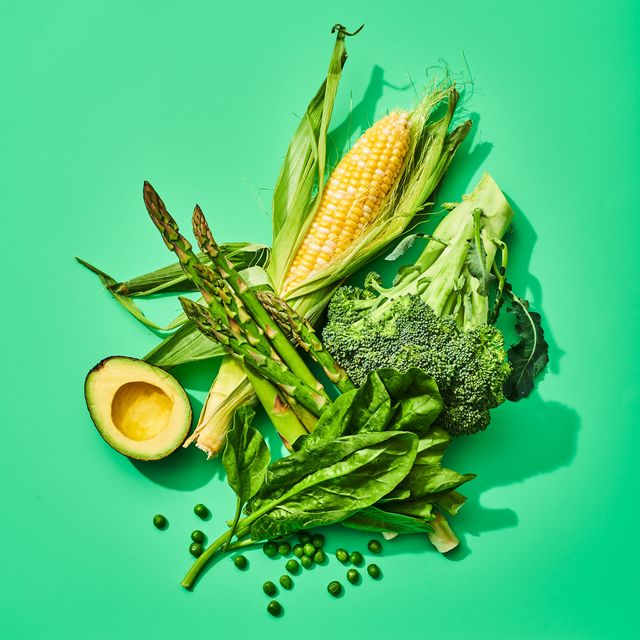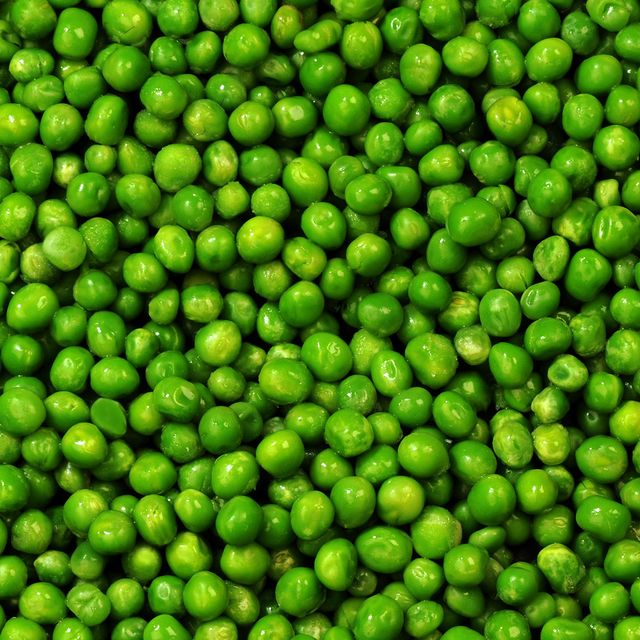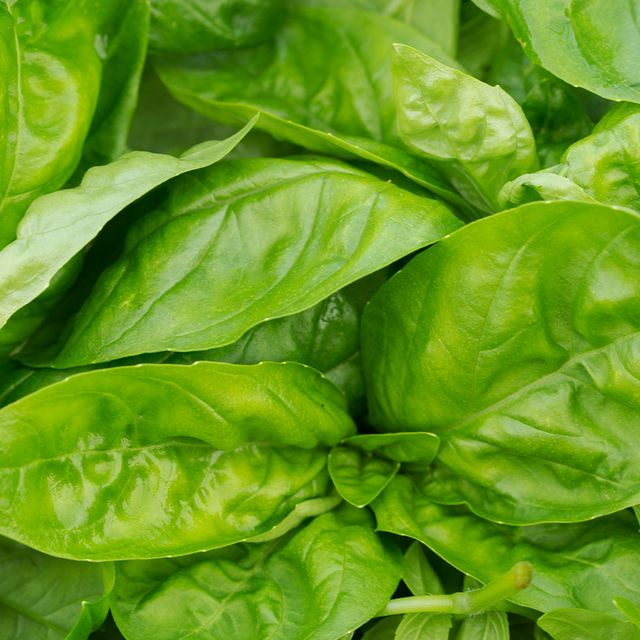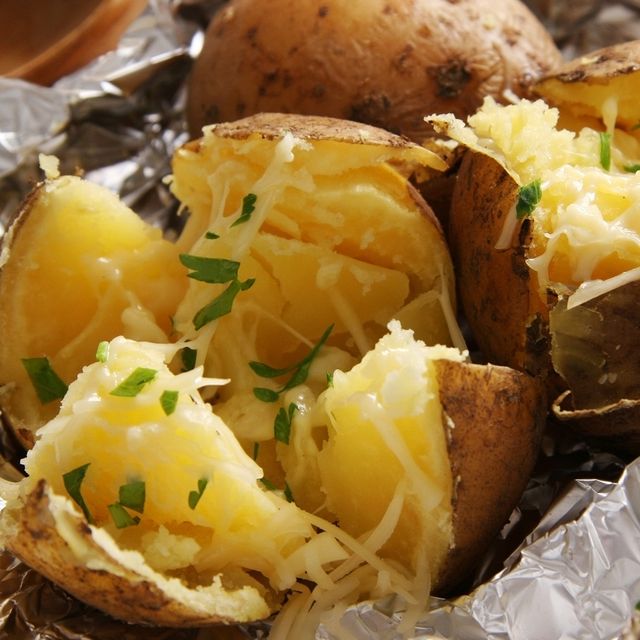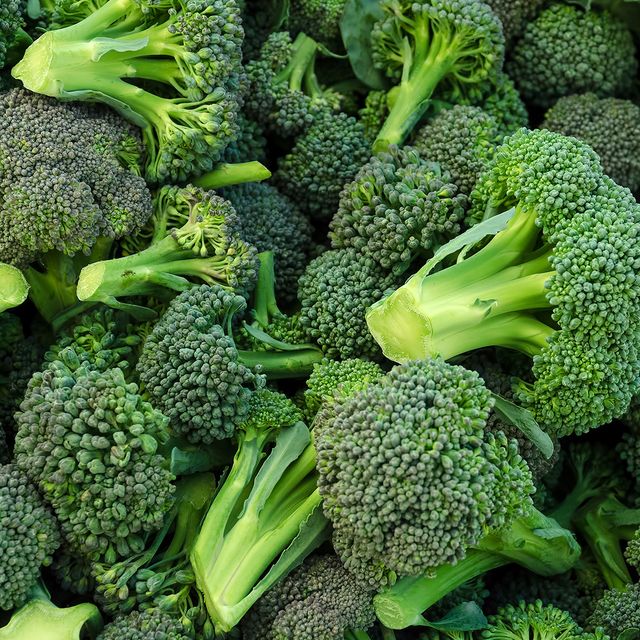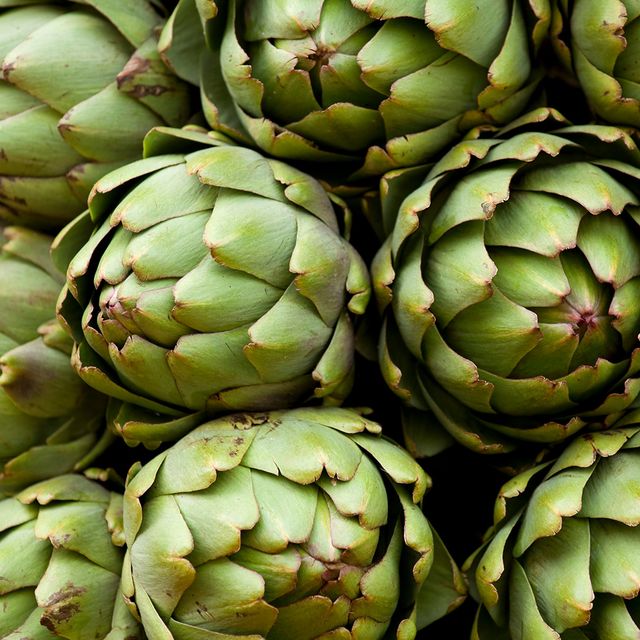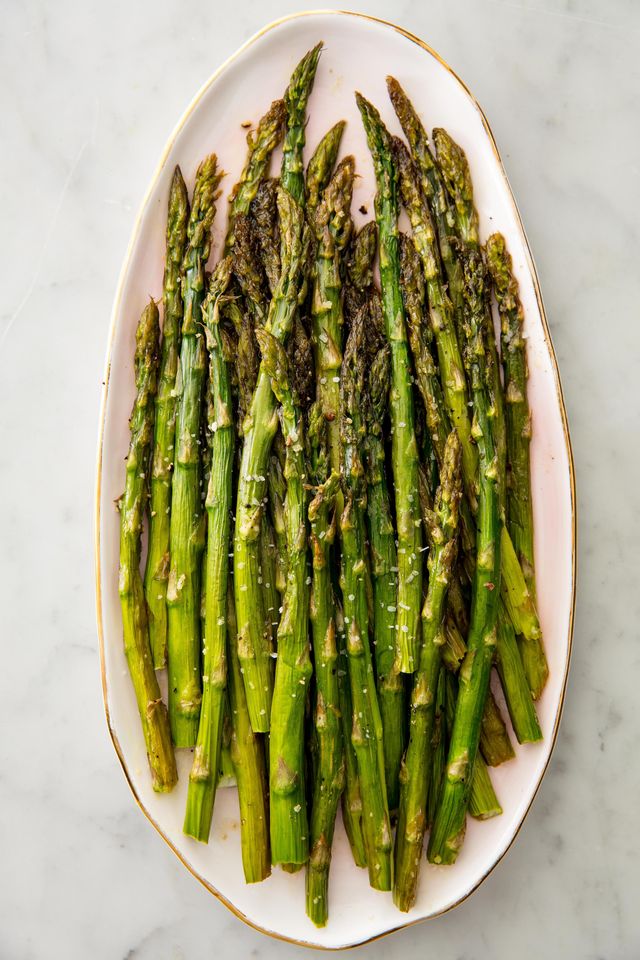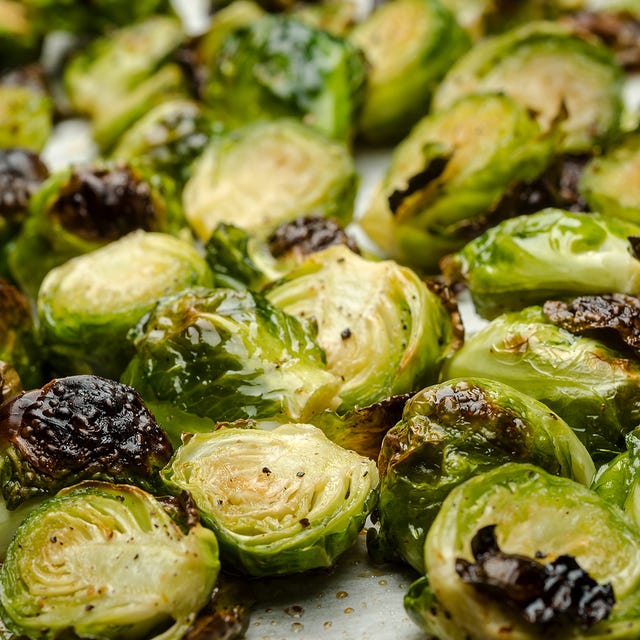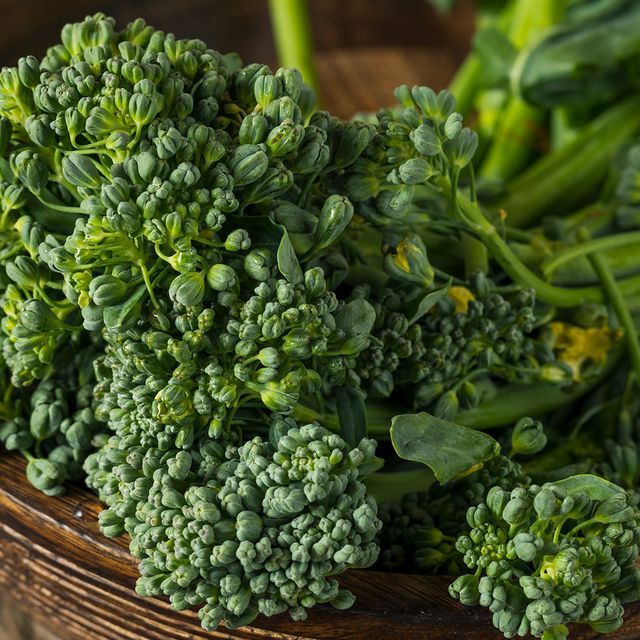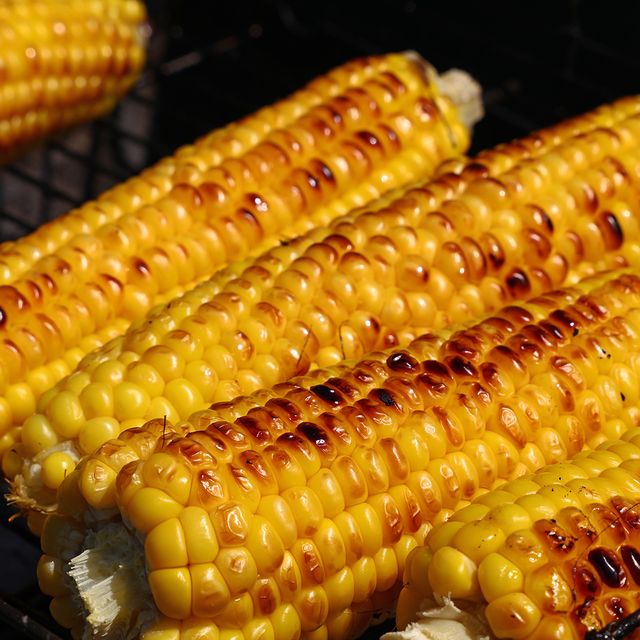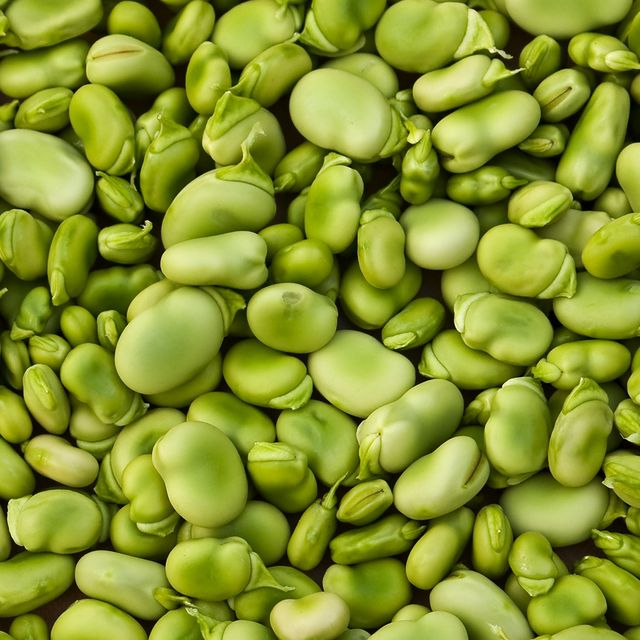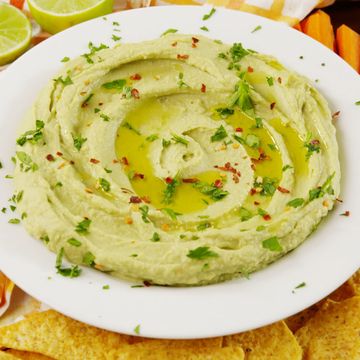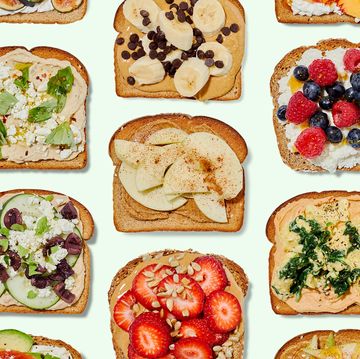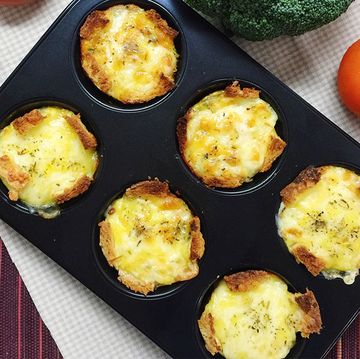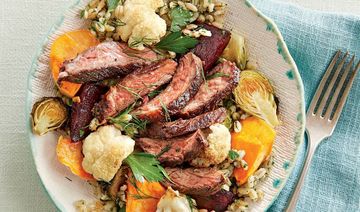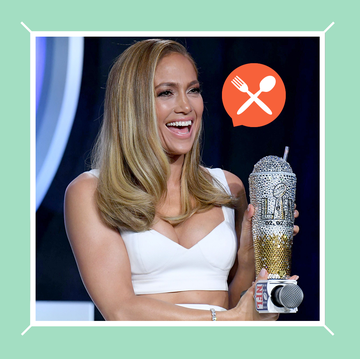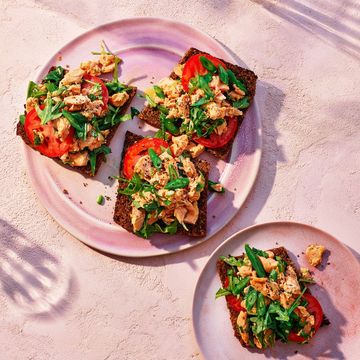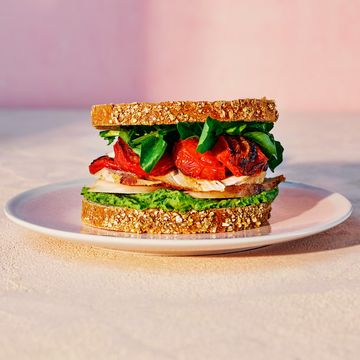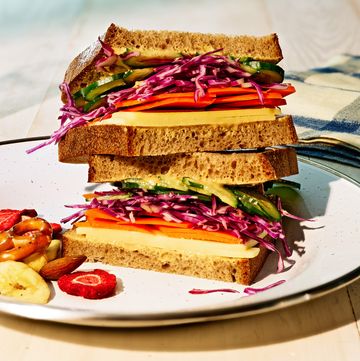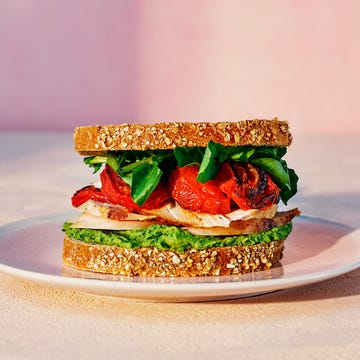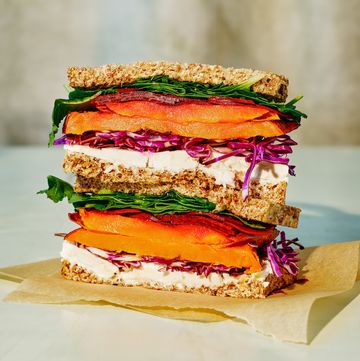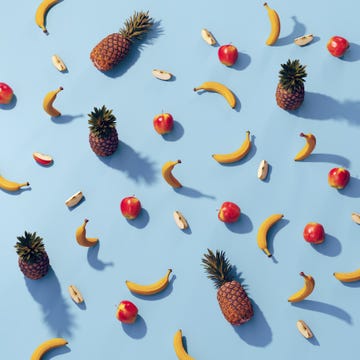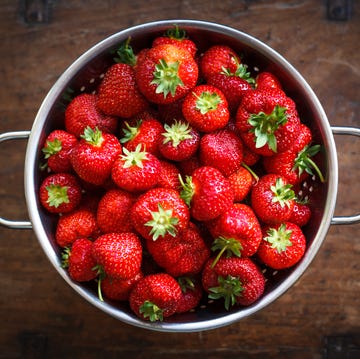Whether your goal is to build muscle or to simply avoid the 4 p.m. hangries, protein no doubt plays a vital role in your nutritional game plan. And while meat and animal-based proteins have long been awarded MVP status for their high levels (we see you chicken breast and your 31 grams of protein), vegetables can (and should) offer up a key assist.
After all, every gram counts, and the smaller amounts of protein in veggies can significantly contribute to your recommended daily intake (a minimum of 0.8 g/kg of body weight; likely more if your aim is hypertrophy) if you consume the recommended five to 10 servings a day.
Your best options will be those that fall into the high-protein category. Many vegetables provide you with two grams of protein per cup raw, or per half cup cooked, so anything with two or more grams per serving can be considered a high-protein vegetable, according to Rosanne Rust, RDN.
Meet the experts: Rosanne Rust, RDN, is the founder of Rust Nutrition Services. Monique Richard, RDN, LDN, is a national spokesperson for the Academy of Nutrition and Dietetics and a certified yoga instructor.
Along with delivering modest amounts of protein, these veggies also score with nutrients that steak and eggs don't provide.
"Vegetables offer fiber that helps with our gastrointestinal tract and bowel movements," says Monique Richard, RDN, national spokesperson for the Academy of Nutrition and Dietetics. "They also provide vitamins A and C and potassium, and give you antioxidants that help defend from all sorts of diseases and pathogens."
Both experts agreed that in order to get the max benefits from your vegetables—including all of the essential amino acids—be sure to "eat the rainbow," aiming for a mix of different colors throughout the day. (Translation: Don't just eat tons of broccoli and call it a day.)
Now that you know the score, fill your cart with these high-protein vegetable options on your next grocery run.
1. Peas
These literal pea-sized gems pack more than meets the eye. “Peas are loaded with vitamin A, a good source of potassium and fiber, and provide four grams of protein per half cup,” says Rust. “Steam them and toss them into pasta, rice, or salads.”
Per 1/2-cup serving: 59 calories, 0.3 g fat (0 g saturated), 10 g carbs, 4 g sugar, 4 mg sodium, 4 g fiber, 4 g protein.
2. Spinach
Richard likes spinach for its versatility: "It cooks down easily, so you can eat it sauteed or in a casserole or in soup. In its raw form you can use it in salads or a smoothie." Either way, you'll get vitamin C, folic acid, and other B vitamins alongside all that protein.
Per 1/2-cup serving: 21 calories, 0 g fat (0 g saturated), 3 g carbs, 0 g sugar, 63 mg sodium, 2 g fiber, 3 g protein.
3. Avocado
Ah, yes, toast's best friend. A cup of the green stuff pureed comes fortified with 4.6 g of protein. But if you're planning on making it a meal, Richard recommends giving your avocado a boost with another protein source. "If you have an egg and an avocado it's even better because the egg is going to be six to eight grams," she says. "If you're trying to avoid animal products then something like tofu is a great option."
Per 1-cup serving: 368 calories, 33 g fat (0 g saturated), 20 g carbs, 1.5 g sugar, 16 mg sodium, 15 g fiber, 4.6 g protein.
4. Baked potato
You'll throw praise-hands emojis up at Mother Nature for this one: A medium-sized baked potato contains three grams of protein, tons of vitamin C, potassium and some filling fiber, says Rust. (But be mindful that not all taters are created equal: While a sweet potato has a bit more fiber, it actually has less protein than a regular russet, says Richard.)
Per medium potato: 145 calories, 0 g fat (0 g saturated), 34 g carbs, 3 g sugar, 8 mg sodium, 2 g fiber, 3 g protein.
5. Broccoli
Your parents were onto something when they forced you to eat your broccoli as a kid. Now, you’ll want it all on your own—Rust says this cruciferous veggie isn’t only packed with essential nutrients, fiber and protein, but it’s great for maintaining proper gut health too.
Per 1-cup serving: 31 calories, 0.3 g fat (0 g saturated), 6 g carbs, 2 g sugar, 30 mg sodium, 2 g fiber, 3 g protein.
6. Artichoke hearts
This one might take a little more prep work than the others on the list ("there's definitely an art to it," says Richard), but it's worth the investment. Artichoke hearts (the innermost part of this bulbous-like veg) when cooked yields 2.5 g of protein per serving, and are also rich in potassium, fiber, and vitamin C. (If you're curious about the easiest way to cook them, we've got you covered.)
Per 1/2-cup serving: 45 calories, 0.3 g fat (0 g saturated), 10 g carbs, 1 g sugar, 50 mg sodium, 4.8 g fiber, 2.5 g protein.
7. Asparagus
Yes, these crunchy stalks make your pee smell funny, but that's just a "byproduct" of all of asparagus' good-for-you compounds, says Richard. In addition to vitamin C, asparagus is also a great source of fiber, plus you'll get some potassium and B vitamins too. Richard likes to roast hers with garlic, salt, pepper, olive oil, and Worcestershire sauce.
Per 1/2-cup serving: 20 calories, 0.2 g fat (0 g saturated), 3.7 g carbs, 1 g sugar, 12.6 mg sodium, 2 g fiber, 2.1 g protein.
8. Brussels sprouts
These little green guys used to get a bad rap, but now they’re on every gourmet menu around town. Like broccoli, Rust says these sprouts are a great source of potassium, vitamin A, vitamin K, and fiber. Steal her simple tip: Halve them, place them on a baking sheet, drizzle with olive oil, add a pinch of salt, and roast them for 25 to 35 minutes at 400 degrees, tossing once halfway through.
Per 1/2-cup serving: 28 calories, 4 g fat (0 g saturated), 6 g carbs, 1 g sugar, 16 mg sodium, 2 g fiber, 2 g protein.
9. Broccoli rabe
Also known as "rapini," broccoli rabe (pronounced "rob") boasts leaves, buds, and stems that are edible, and despite its name, it's actually more closely related to the turnip than regular ol' broccoli. Load them onto your plate for a good amount of protein, vitamin A, and vitamin K.
Per 85 g serving: 21 calories, 0 g fat (0 g saturated), 3 g carbs, 1 g sugar, 48 mg sodium, 2 g fiber, 3 g protein.
10. Corn
While field corn (fed to livestock animals) is considered a grain, the sweet corn we enjoy on the grill slathered with some butter is considered a vegetable, says Rust. And a surprisingly protein-loaded one, at that.
Per medium ear: 88 calories, 1.4 g fat (0 g saturated), 19 g carbs, 6 g sugar, 15 mg sodium, 2 g fiber, 3 g protein.
11. Portobello mushrooms
Besides the protein, this vegetable is also high in fiber and loaded with antioxidants. “You can grill, chop, and sauté them using olive oil and a drizzle of balsamic vinegar at the end of cooking," says Rust. "You can also add them to a vegetable skewer to boost the protein.”
Per 100 g serving: 32 calories, .3 g fat (0 g saturated), 5 g carbs, 5 mg sodium, 2 g fiber, 2.75 g protein.
12. Lima beans
The combination of high fiber and high protein make these legumes (in this case, a veggie, too, says Rust) a satiating nutrient-filled powerhouse. To make a healthy homemade dip, Rust says to cook them in boiling water for 10 minutes, drain and cool, then transfer to a food processor, adding a clove of garlic, a tablespoon of lemon juice, two teaspoons of cumin and pinch of salt. Blend until smooth and serve with raw veggies or pita chips.
Per 1/2-cup serving: 105 calories, 0 g fat (0 g saturated), 20 g carbs, 1 g sugar, 13 mg sodium, 5 g fiber, 6 g protein.


